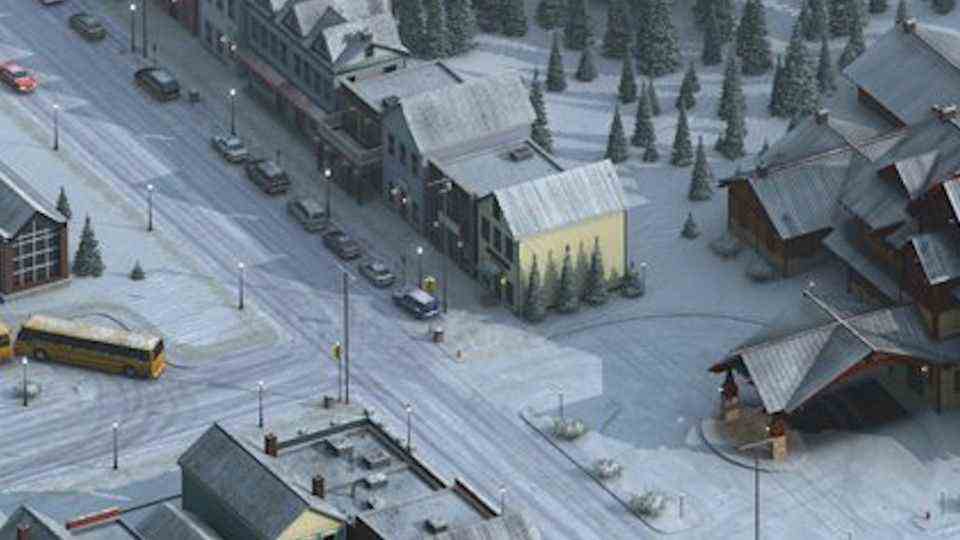Secret services
007 was yesterday: How face recognition and permanent surveillance are changing espionage
Government surveillance is increasing worldwide
© Ignatiev / Getty Images
With a camouflage identity in the lion’s den: spies in other countries have long been one of the most important sources of information for secret services. Now you have to rethink.
A look into the cameras of the subway, the location when using social networks, the saved search on Google: Every day we leave behind a steadily increasing stream of data that is eagerly evaluated by companies and sometimes even governments. But what usually only brings creepy, tailor-made advertisements to the average person is becoming an ever greater danger for spies around the globe. And it makes classic informers’ work more and more difficult.
The times when a secret service agent could travel undetected through the world with a suitcase full of false passports will probably soon be over, a detailed report in the “Wall Street Journal” shows. “It’s really bad,” a former US counterintelligence officer told the newspaper. In addition to increasing video surveillance around the world, advances in the recognition of biometric data and the constant flow of information from our smartphones would make work more difficult. “It fundamentally changes how we conduct our business with which assumptions and approaches.”
Case of technical progress
In the past, it was often sufficient to issue a modified passport in order to be equipped with a new identity to collect largely undetected information within the borders of another state, but this is hardly possible in view of the automated permanent surveillance. It is “much more difficult to remain in the dark and to operate clandestinely without risking exposure – of yourself, the agents and the secret service methods,” complained a report by a think tank on the current problems of the US foreign intelligence service CIA.
The hurdles are as varied as the amount of data collected. The most obvious is the combination of the constant global surveillance by video cameras in connection with face recognition. Not only does it make it more difficult to enter under a false identity. It also ensures that the agents can hardly collect any information without being observed every step of the way. In addition, there are the informative data streams of modern life such as smartphones, credit cards or social media.
“The classic elements of espionage have been destroyed”
Cover identities can hardly be maintained, explains former CIA site manager Duyane Norman of the newspaper. He is convinced: is convinced: “The classic elements of espionage have been destroyed.” How is an agent supposed to credibly maintain a false identity as a businessman or an ordinary government representative when it is verifiable from cameras and location data that he is practically never in the office? However, omitting a smartphone entirely is just as suspicious.

In almost 30 countries, it would no longer be necessary for the counter-spies to physically follow the potential agent, explained the then technology chief of the CIA, Dawn Meyerriecks in a speech in 2018. “Between camera surveillance and digital infrastructure, surveillance is good enough not to have to.” In authoritarian states like Russia or China in particular, there would hardly be any possibility of avoiding permanent surveillance using traditional methods, since there are hardly any limits to the way the state can evaluate the data. The CIA has already warned that an increased number of informants would be exposed and arrested, reports the New York Times.
Team sport
The secret services must now look for new ways to get undetected information. And not just in terms of technology, such as falsifying cell phone location data. Instead of a loner in the style of a James Bond, entire teams are increasingly being used. In her 2018 speech, Meyerriecks reported on a CIA field test in which a team deliberately bypassed the security cameras in an unnamed US enemy. For this purpose, all surveillance cameras were listed, including their alignment. Using artificial intelligence, it was then possible to plan routes through the city without surveillance. While the spy was moving through the city, his team reported to him via a smartwatch whether he was being watched or not and gave instructions.
Because such an approach is of course considerably more complex, the secret services have to focus. “There will be fewer missions overall,” believes Norman. The number of recruited local citizens is also falling. “You put a lot more energy into the few important missions.”
Mole instead of a false identity
The wrong passport should be a thing of the past. “It is increasingly difficult to hide behind a false identity,” a former intelligence officer told the newspaper. The agents are therefore increasingly likely to enter the country under real names. And actually live their cover identity. So really pursue the ostensible day’s work as an employee, academic or businessman. And do the espionage on the side.
It is no coincidence that this is reminiscent of spy series like “The Americans”. In recent years, this approach has been expanded by the Russian and Chinese intelligence services, said former counter-espionage officer William Evanina the “Journal”. And the Americans, too, seem to have been acting like this for a long time to smuggle agents into other countries. “That would be a pretty good assumption,” Evanina said when asked.
Source: Wall Street Journal, New York Times


